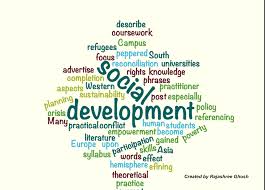About the Course
The geo-political scenario prevailing during post World War II period, combined with cold war and decolonization paved the way for structuring the social and economic transformation of the non-western, non-industrial, developing societies in a specific way. Different sociological perspectives offer distinct ways to comprehend the historical trajectories and contemporary efforts of the newly decolonized, developing societies of Asia, Africa and Latin America to transform themselves from traditional, agrarian, rural social structure to that of a modern, industrial and urban society. This course attempts to gain a sociological understanding of the complexities of the process of development as it unfolded in these societies. The course offers a broad overview of the way development is conceptualized and contested in social sciences literature. It explores specific issues of development such as poverty, inequality, hunger, capability; as well contemporary concerns such as decentralization, displacement, gender, participation and sustainable development. The course reviews the major debates on development from three important theoretical perspectives, i.e. modernization, dependency and world system; besides introducing to the students the major arguments of the post-development perspective, which allows for a better understanding of contemporary issues in the field.






Course Instructors



